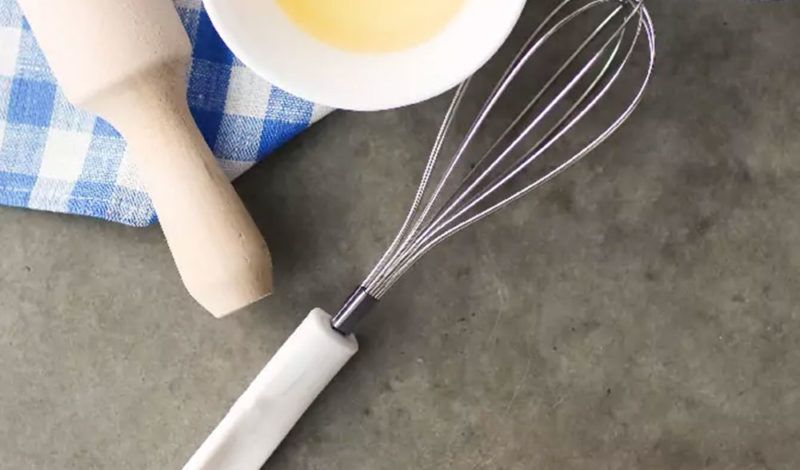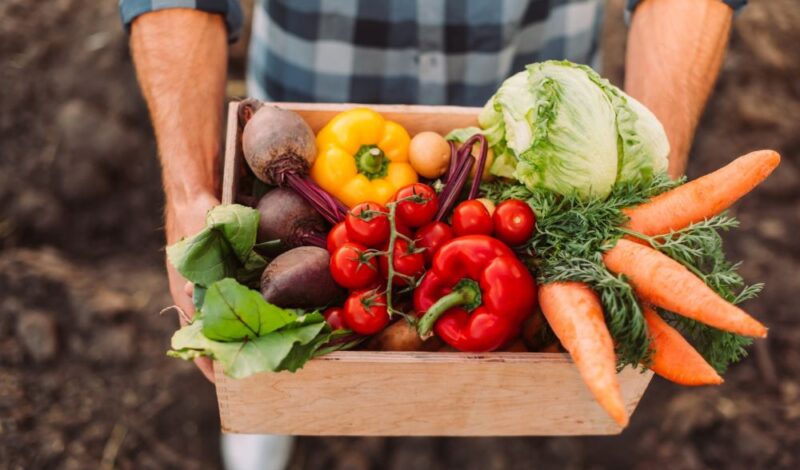Get the bowel going with sport Do you eat a lot of fruit and vegetables? Then you are already doing [...]
Recipes and Ideas
The gut can be colonised by good bacteria which help you digest your food and bad bacteria, which are a breeding ground for diseases. The first type of good bacteria can be damaged by antibiotics, radical diets and illnesses, often resulting in a weakened immune system. Building up a stressed intestinal flora can, however, be supported with recipes containing products which are easy to digest and light whole foods.
We are not alone in our bodies. There are ten times as many microorganisms in and on us as we have body cells. Our predominantly beneficial fellow inhabitants include amoebae, mites, fungi and bacteria. It’s the bacteria that matter most. Most beneficial bacteria are found in the digestive tract – in the small intestine and especially in the large intestine. It is populated by over 1,400 bacterial genera and a total of around 100 trillion individual bacteria.
The totality of allmicroorganisms in the gut make up our intestinal flora – or microbiota. The microscopic digestive helpers are located in the intestinal mucosa. There they break down indigestible food components, utilise important nutrients and train the immune system. The general state of health is thus directly related to intestinal health. Recipes for a healthy intestine are needed when the intestinal flora is weakened and needs to be boosted.
Gut-healthy food: light diets and light whole foods
Recipes containing products which are easy to digest should be used for diets which are adapted to certain courses of disease or digestive complaints and thus promote the recovery of the digestive organs. If there are no specific symptoms, we sometimes speak of a light wholefood diet or a general light diet. The most important thing here is to follow a nutritious diet and to supply the body with all the important nutrients in a form that is as easy to digest and tolerate as possible.
Newest article
Why recipes for gut health?
It can be useful to eat a light diet if the gut has suffered due to external influences or particles that are not meant for the gut. These include, among others, the following diseases and syndromes:
Psychological factors and diseases can alsolead to an imbalance in the gut. The gut-brain axis, which has not yet been fully researched, is responsible for this. It refers to the interrelationship between mental state and intestinal health.
If there is no symptomatic illness, but a food intolerance to certain nutrients or a generally sensitive stomach or gut, the so-called light whole food diet is recommended. It provides the body with important nutrients in a form that is as easy to digest as possible. It lacks all foods that can lead to the following digestive complaints:
- bloated belly
- flatulence
- constipation
- bowel sounds
More articles
Gut flora restoration through easy-to-digest nutrition
The bacteria in out gut are influenced by our diet. Depending on how healthy or unhealthy you eat, the little digestive helpers have an easy or hard job. The foods you eat predominantly – for example, mainly vegetables or meat, fresh food or convenience products – change the composition of the intestinal flora in the long term and strengthen or reduce useful bacterial strains. For example, vegetarians have more carbohydrate-processing bacteria in their gut, whereas meat-eaters are dominated by bacteria that produce enzymes that break down proteins.
Recipes for gut health and gut cleansing often include home or food remedies that have been proven to help in case of a weakened gut. With a specific nutritional recommendations tailored to your gut flora that the scientists at BIOMES put together for you, you can choose specific recipes and foods that are good for your gut.
If you suffer from digestive problems and are already thinking about gut flora restoration, the INTEST.pro intestinal analysis from BIOMES enables you to determine the composition of your intestinal flora by means of a test procedure according to the highest biotechnical standard. Based on this, you can support your diet with probiotic dietary supplements if necessary.
A balanced intestinal flora alleviates intestinal complaints
To restore the intestinal flora, a precise analysis of the causes of the imbalance is necessary. With INTEST.pro, BIOMES brings the first complete intestinal flora analysis to the market, which contains individual recommendations for increasing health, well-being and quality of life.
INTEST.pro is a self-test used to collect a stool sample in a private environment, which determines the microbial composition, i.e. the number and ratio of all intestinal bacteria.
The balance of the intestinal flora can be supported by taking probiotics or probiotic foods. You can find more information about this on our info page on probiotics.






